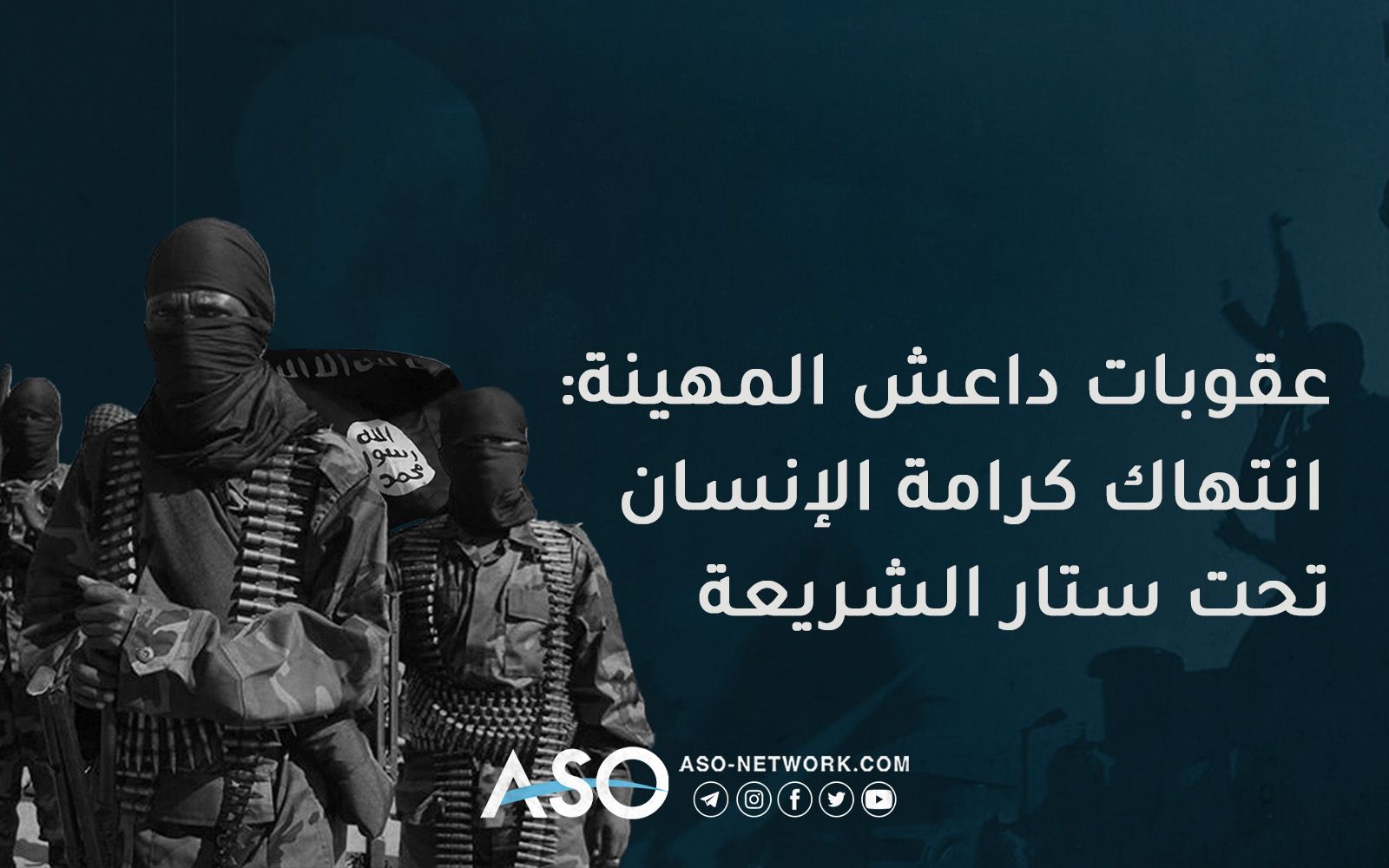News
ISIS’s Humiliating Punishments: Violating Human Dignity Under the Pretext of Sharia

ISIS used various intimidation tactics to impose its views and control over society, blatantly disregarding human rights and dignity. This article sheds light on some of the punishments carried out by ISIS’s Hisbah and police forces, which were implemented publicly in marketplaces and other crowded areas, subjecting violators to humiliation and disgrace:
1-Placing Violators in an Iron Cage:
In the city of Al-Tabqah, the group set up an iron cage in a busy area, where they placed those who violated Hisbah orders—such as those who skipped prayers, shaved their beards, or wore long garments—constituting a clear violation of human rights.
2-Flogging in the Marketplace:
ISIS flogged cigarette smokers on main streets and in public markets using leather or plastic whips, despite such punishment not being stipulated by Islamic Sharia.
3-Parading Violators on a Donkey:
The group forced tobacco sellers and other violators to ride a donkey backwards and paraded them through the main markets of Al-Tabqah, subjecting them to mockery from children and passersby in a deeply humiliating scene.
4-Crucifixion in the Marketplace:
ISIS used cross-shaped poles to tie violators under the sun or in cold weather for hours. This punishment, used against those who missed prayers, smoked, or wore long garments, blatantly violated human dignity.
5-Beating Women in Public:
Hisbah members beat women who violated ISIS’s strict dress code using sticks, violating women’s rights and dignity and subjecting them to public humiliation.
6-Shaving Hair in a Humiliating Manner:
The group punished individuals who did not cut their hair according to ISIS standards by shaving parts of the head and leaving others, creating a ridiculous appearance.
7-Tearing Off Violators’ Clothes:
Hisbah members tore the clothes of those who did not comply with ISIS’s dress codes, such as wearing tight clothes or jeans, subjecting them to mockery and showing no regard for personal dignity or privacy.
In this context, Ahmad Al-Ahmad, a resident of Al-Tabqah, spoke to ASO News Network about an incident he witnessed: a young man riding a donkey backward with a sign on his back reading “Cigarette Seller,” paraded in front of passersby. Ahmad added that these punishments aimed to instill fear and exert psychological control over the community.
Another young man (M.Kh.) shared how he was publicly flogged in 2015 simply because someone from ISIS smelled cigarette smoke on him. He expressed feeling humiliated and ashamed in front of others, emphasizing that the group only sought to enforce dominance and spread terror among the people.
It was a bitter era for the people of Al-Tabqah—an era that dragged them back to dark ages, to regimes that devalued human life, stripped away dignity, and committed horrific crimes to assert power and control.
